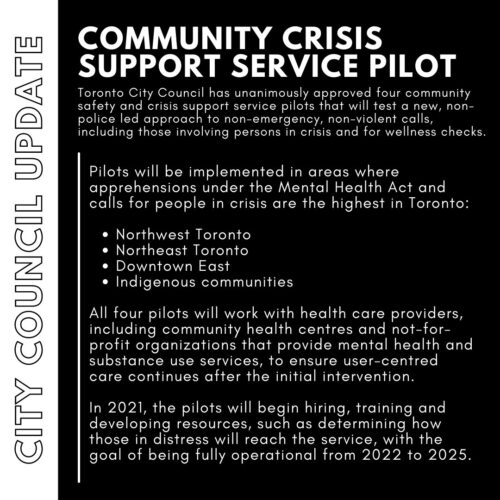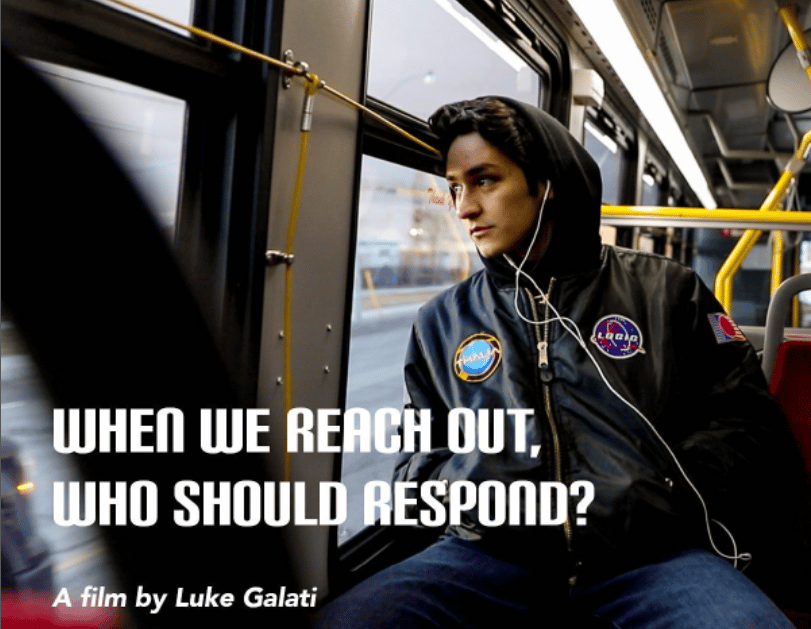Luke Galati recalls his own mental health crisis when he was met with a police presence in the Danforth region around his home.
Luke, who received a bipolar diagnosis in 2017, says he was lucky to not be physically harmed, but knows that other several situations were not as fortunate.
In his new film, When We Reach Out, Who Should Respond, he explores several other mental health crises when the police are the first responders and why the city needs to implement better methods to avoid violence and, in some instances, death.
“It was a challenge,” he says. “The first thing I had to get over was being self-conscious of putting your own story out there. Will people judge me? What will people think? Will people look down on me?”
However, he says it was necessary to start with his own story to create the type of film he wanted and message he wanted to convey.
“I realized there’s real power in telling your own story.”
Luke has become well-known in both Toronto’s film and sports communities for his works documenting basketball and Regent Park.
As he completes his graduate studies at Toronto Metropolitan University, he says he was ready for this new project.
Just as he intended to diversify his filmography and challenge his skill for storytelling, the film arrives as potential change is happening in Toronto.
A pilot project to address mental health crises alternatively without a police presence is taking shape in the city.

The Toronto Community Crisis Service was established in March and began in the east and northeast sections of the downtown core.
Teams of community health nurses, counsellors and harm reduction workers will be the first responders – something that Luke hopes will become a permanent fixture in all parts of the city.
While he addresses that the struggle has been too long for these safer responses to mental health crises, Luke says he does feel safer for himself and others with the project in place.
As the film sets to make its debut across Toronto this June, he hopes he has helped increase awareness for mental health, and that he can help others be more open about their stories.
“Through telling my own story, I hope that maybe it inspires someone else to tell their story, or at the least feel like their story has been heard,” he says. “I hope it changes someone’s life in some way or pushes the conversation forward because at the end of the day, that’s what’s it is all about.”
When We Reach Out, Who Should Respond debuts on June 2 at the Hot Docs Ted Rogers Cinema and as part of Stella’s Place Get Reel Film Festival at the TIFF Bell Lightbox starting June 6.
The film’s trailer can be found here.
Stella’s Place is a Toronto-based charity offering free mental health services for adults ages 16 to 29.
Luke’s other works include SMOKEYSWRLD that follows the NCAA aspirations of Regent Park’s Kymahni Bent and Eastern, which documents the final days of the Eastern Commerce Collegiate Institute and its basketball program.









